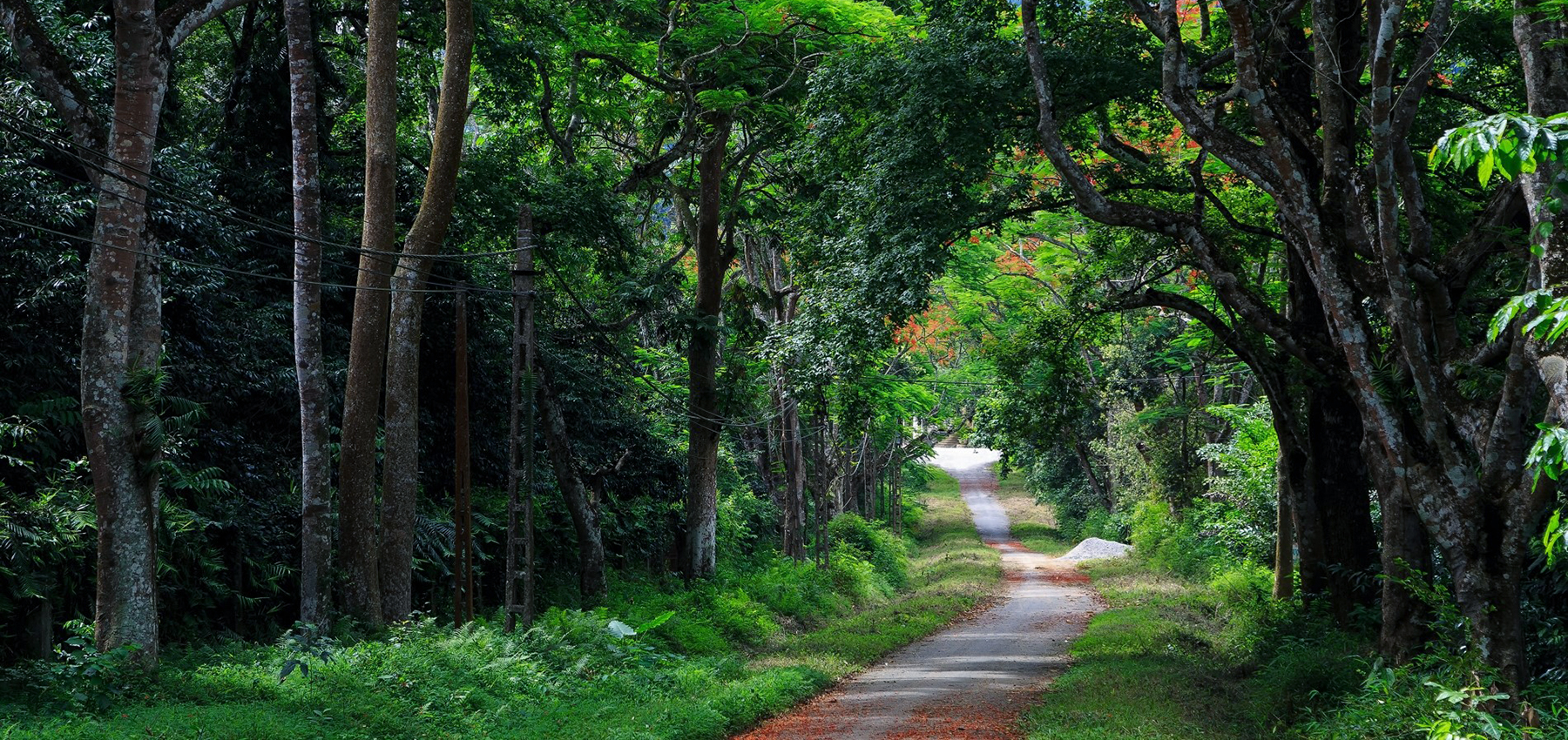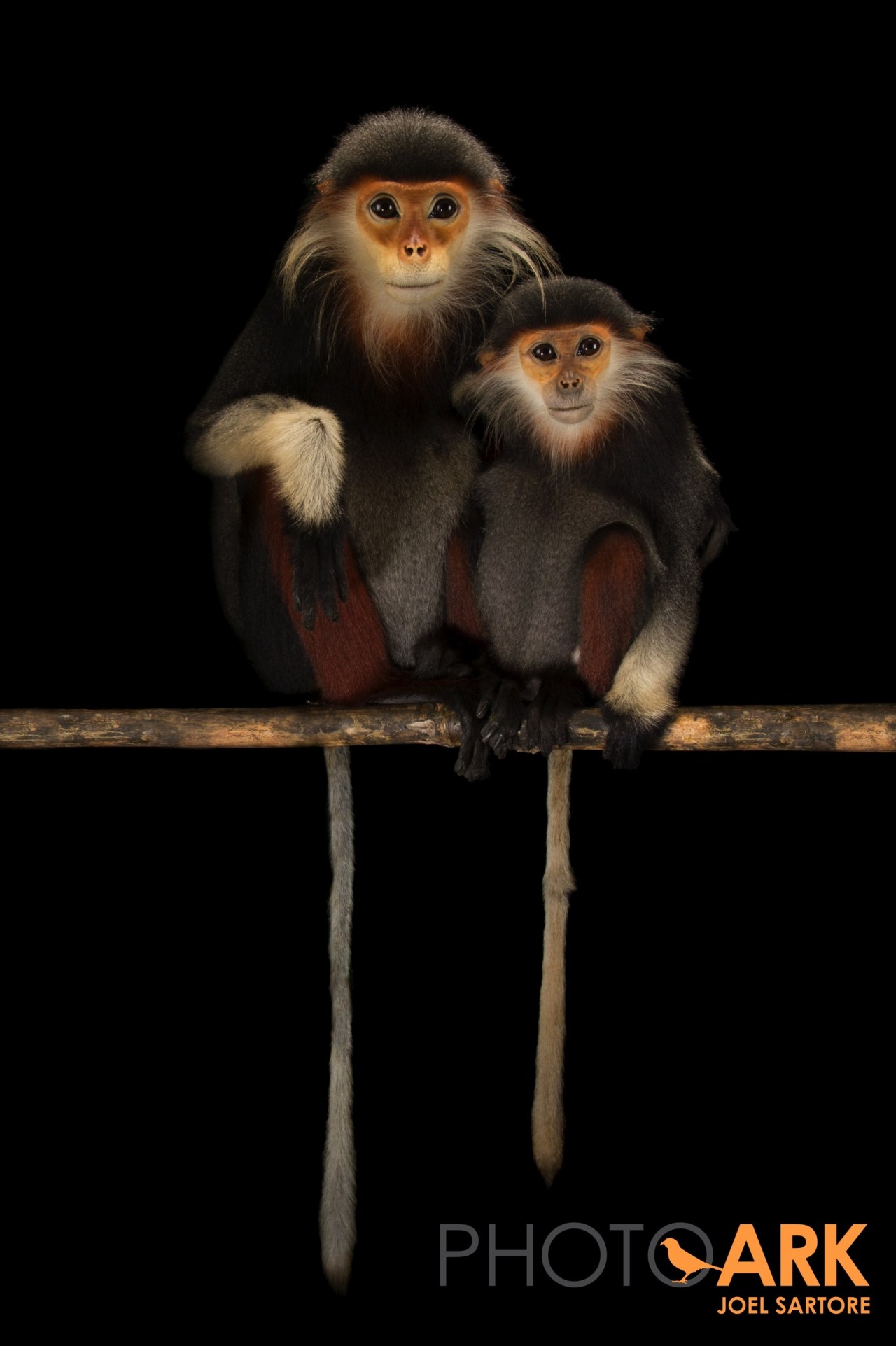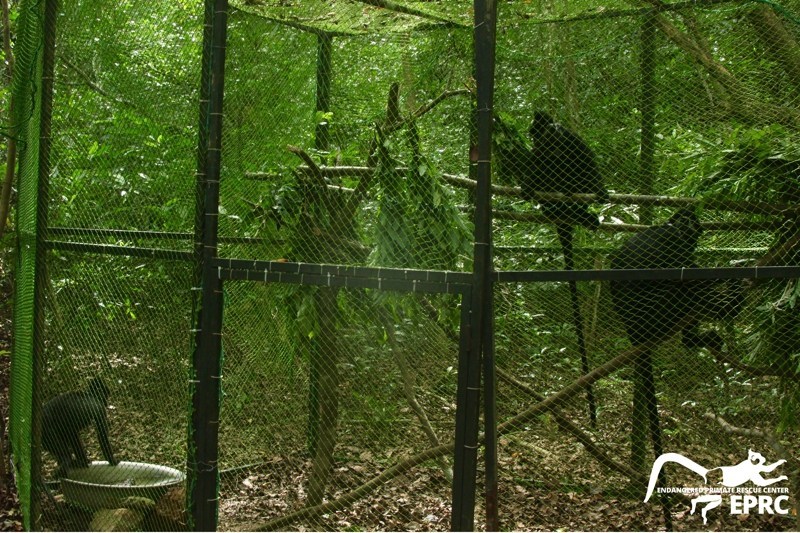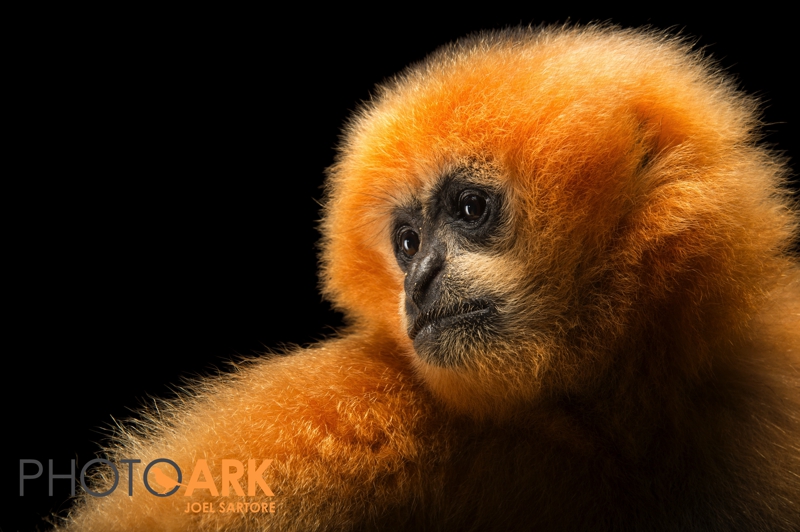

Tháng Tám 25, 2016• English, News
According to Viet Nam News, the central city has chosen the red-shanked douc langur (Pygathrix nemaeus) as the official mascot of Da Nang at the 2017 APEC (Asia-Pacific Economic Co-operation) Summit.

» Red-shanked douc langurs photographed in the EPRC by Joel Sartore.
Tháng Bảy 9, 2016• English, News
On the 3rd of July, the first langur release program in 2016 carried out by the EPRC, in cooperation with GreenViet, took place in Ke Go Nature Reserve, Hatinh province in the presence of delegates and rangers from Hatinh province.
One of the most frequently asked questions at the EPRC by our visitors is: Will you release these animals back to the wild? To answer many of our supporters’ inquiry, we want to announce to everyone the first update on EPRC’s langur release program in 2016.
Three Hatinh langurs, including one male and two females, were released to a secret site in Ke Go Nature Reserve, Hatinh province, on Sunday last week. The program does not stop with the animals being released, but will continue for the next 12 months with researchers from GreenViet monitoring the langurs on a daily basis.


» An infant Hatinh langur at the EPRC
Tháng Ba 27, 2016• English, News
The Hatinh langur is well-known around the center for their reproductivity rate. And they once again just proved their fame by giving birth to an orange female baby this morning, making it the 7th baby Hatinh langur out of the total 13 baby primates born in EPRC since 2015.
No one would forget the newborn female Hatinh langur’s birthday as she was born on Easter Day, 27th of March. Hatinh langur offspring, just like any other Trachypithecus (Cat Ba langur, Delacour’s langur…), are coated with an orange fur at birth and will gradually transform into their adult fur in the first one year and 3 month of their life. The only difference in coloration between male and female Hatinh langur at birth is the white patch on the rump of the female offspring, while the male wears a orange fur all over their body. Hence, this newborn is a female.
However, a newborn could also have different color variations as some would not be completely orange. This is also the case for the newborn as she’s already possessed a color mixture of black and orange.
Tháng Ba 25, 2016• English, News
On 22nd of February, Loem the Delacour’s langur gave birth to a baby in the semi-wild enclosure. The sex of the newborn has been a mystery until recently.
Five Delacour’s langurs living in the semi-wild area are planned to be released to the wild in the near future. However, on the 22nd of February, to our surprise, Loem, the 6-year-old female Delacour’s langur, gave birth to a baby for the first time in her life. The population of Delacour’s langur is estimated to be less than 250 individuals, thus the birth of an offspring never fails to bring us immense joy.

» The happy family sunbathing on a rare sunny day in the always-misty Cuc Phuong National Park
Tháng Ba 12, 2016• English, News
“The Alarming Situation of Primates in Vietnam” is a photo album comprising of species information and facts that aims to raise awareness and call for urgent actions from concerned citizens.
The following photos are in courtesy and copyright of Joel Sartore.

» Southern red-cheeked gibbon (Nomascus gabriellae) – Status: Endangered.
Tháng Ba 7, 2016• English, News
We’ve got great news! A new Delacour’s langur was born in the semi-wild enclosure and we just got the very first photos of this happy family. Check them out in this video.
Delacour’s langur is considered to be the flagship of, not only the EPRC, but also of Cuc Phuong National Park. With estimated population of less than 250 individuals, seeing an offspring born in EPRC always gives us a sense of privilege and pride because our conservation efforts have been paid off.
Tháng Ba 6, 2016• English, News
A population of at least 500 grey-shanked doucs has been uncovered by Fauna & Flora International (FFI) during a recent field survey conducted in Kon Tum Province, Vietnam. This almost doubles the known global population of this enigmatic and beautiful primate.
Read the report: In search of the grey-shanked douc
“To discover a large population of one of Vietnam’s most rare and precious animals is truly an honour,” said Trinh Dinh Hoang, who led the survey effort. Prior to this discovery, the entire species was thought to have only 800-1,000 individuals remaining, and consequently has been listed as one of the 25 most endangered primates in the world.
Restricted to the forests of central Vietnam, the main threats to the grey-shanked douc are deforestation, habitat fragmentation and hunting. Doucs are targeted for the illegal wildlife trade and are hunted for bush meat, traditional medicine and the pet trade.
Tháng Hai 28, 2016• English, News
On the afternoon of 24th, February, Endangered Primate Rescue Center received an inform from Hai Phong city’s Forest Protection Department about a case of loris confiscation. If we successful take over this loris, then it would be the 21st member in the loris family of EPRC.
Without any hesitation, we took the earliest bus to Hai Phong the following day to take over this case because from our experience, confiscated primates tend to be in a not-so-good condition, and time is gold. But fortunately, when we arrived at the loris’ temporary shelter, which is the house of the kind-hearted man named Duc who found the loris, he was in a relatively good condition. How Duc treated the loris was a touching story.
Tháng Hai 8, 2016• Behind the Scenes at EPRC, English, Photo Album
Tet holiday (Lunar New Year) to the Vietnamese equals Christmas to the Christians, Diwali to the Indians, Khmer New Year to the Cambodians. And having to work while everyone else is celebrating would be everyone’s last choice, including Mr. Long. This photo of the week introduces Mr. Long, one of our most dedicated keepers, to our readers and his Tet at EPRC.

Tháng Hai 6, 2016• Behind the Scenes at EPRC, English
Ms. Hue embarked on her animal keeping job with EPRC since 2007. This Tet holiday was another year that Hue’s absence from home due to work left his husband to handle Tet chores alone. Let’s find out how she feels about spending Tet with the langurs in this short conversation I had with her this morning while she was hand-feeding langurs.

Established in 1993, EPRC is a not for profit project dedicated to the rescue, rehabilitation, breeding, research and conservation of Vietnam’s endangered and critically endangered primate species.
© Endangered Primate Rescue Center 2020
Website by MINIMUMMEANS